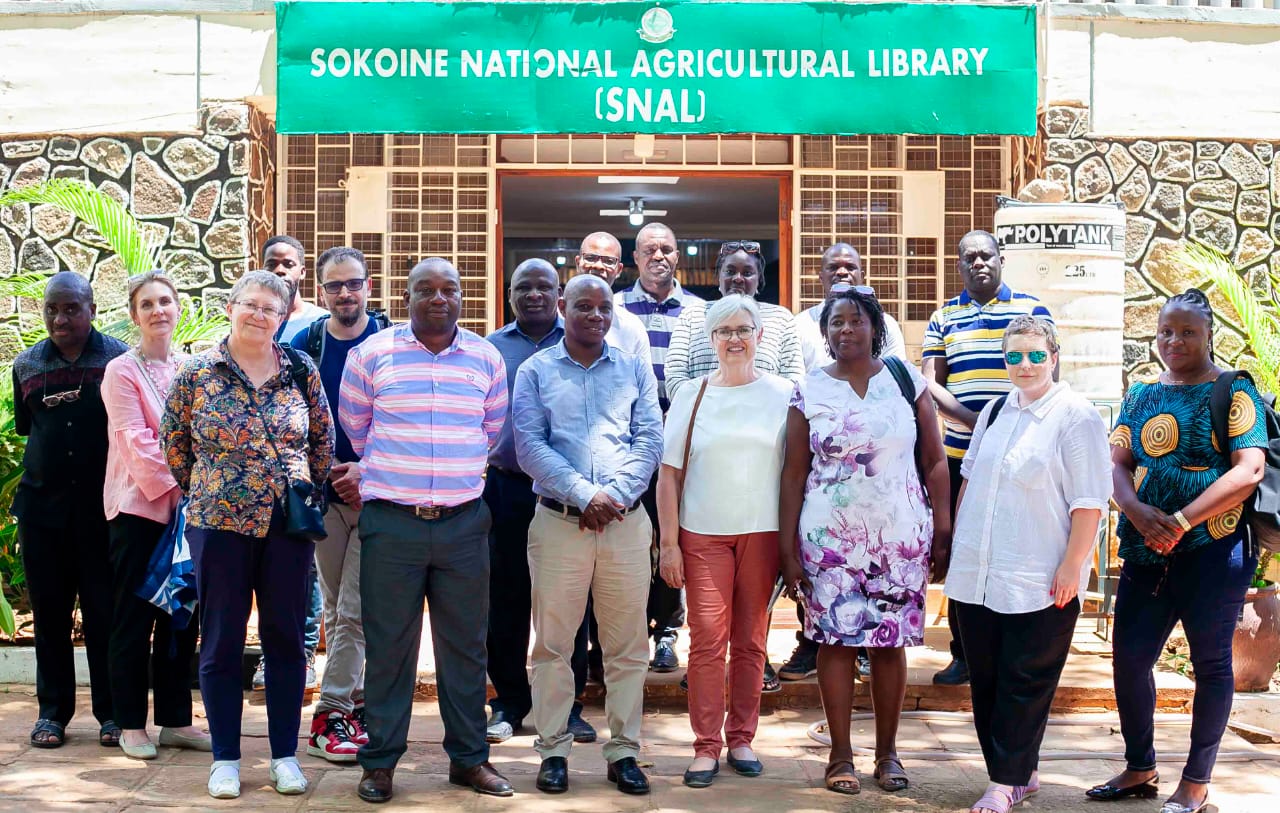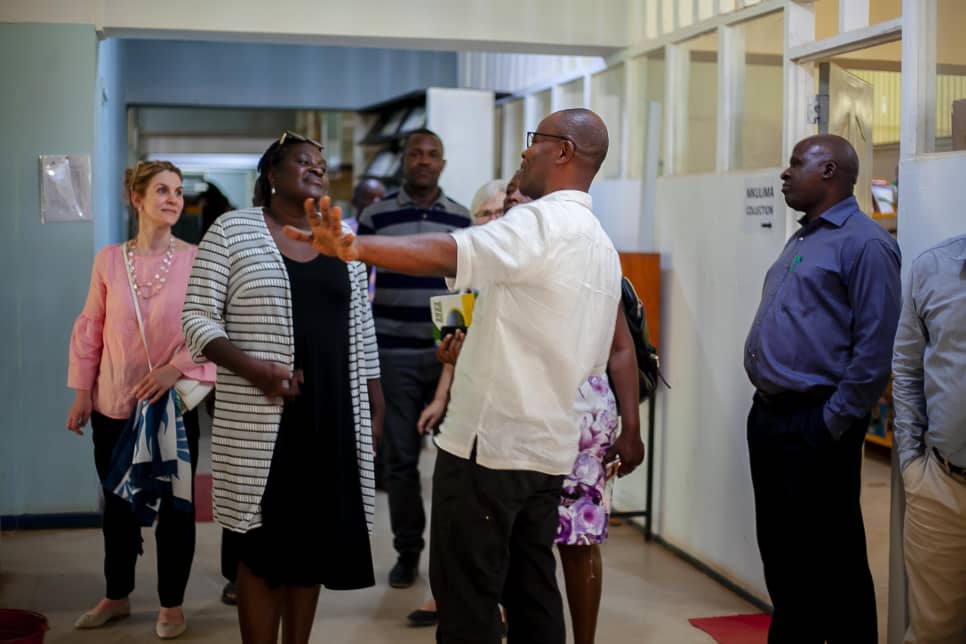Library and information services provided to community members of Sokoine University of Agriculture (SUA) through Sokoine National Agricultural Library – SNAL were appreciated by librarians and academic staff members implementing a project titled Navigating the digital landscape: universities partnering for change (NIAGARA) which involves four countries.
The appreciation was brought out during familiarization visit by the project team at Sokoine University of Agriculture on 17th March 2023 when they visited both libraries at Edward Moringe campus (EMC) and Solomon Mahlangu Campus (SMC). They commented that the library services almost the same from their countries but with little differences of which during the three (3) years of implementation of project NIAGARA participating universities will benefit a lot from each other.

Project NIAGARA team members in a group photo at SNAL, EMC
The main aim of the NIAGARA project is to utilize the partnership between universities in Zambia, Tanzania, Poland and Norway as to improve and expand information services by developing libraries’ ICT infrastructure and librarians’ digital competencies. At SUA the project NIAGARA is under the Department of Informatics and Information Technology.
The project will strengthening the digital infrastructure in partner university libraries in Tanzania and Zambia so as to benefit all students and staff and ensure inclusive and equal access to library and information services. It will also examine current digital competencies needed for efficient provision of library and information services.

SMC Library Supervisor Mr. Jabir Jabir (with white shirt) briefing NIAGARA team members on SNAL activities at Edward Moringe Campus Library.
NIAGARA project will develop and implement short-term courses where primary target groups are Higher Education Institution (HEI) librarians and Library and Information Services (LIS) students in Zambia and Tanzania. Further target beneficiaries are all students and faculty members (including those with fewer opportunities) working in the four countries. NIAGARA relates strongly to UN SDG4 which addresses on Quality education and Reduced inequality.
NIAGARA is composed of seven work packages (WPs): WP1: Management, WP2: Digital competency assessment, WP3: Education and Research support, WP4: Inclusion and equity, WP5: Infrastructural capacity, WP6: Blended mobility, and WP7: Dissemination and sustainability. Some important outputs are open courses and interactive learning materials on digital competency and data management.
Information and outputs will be accessible through the project website and social media. Knowledge gained from the project will be informative for policy makers and leaders in higher education as well as governing bodies in regions that are looking to increase citizens’ digital competencies and even out digital divides. The results will be transferable to other HEIs, library and information science educators, and academic libraries and will contribute to scholarly discussions and research on issues related to open access and accessibility.
In Tanzania universities participating are Sokoine University of Agriculture (which implements WP3), and University of Dar es Salaam (which implements WP2). In Zambia, the two universities are Barotseland University and University of Zambia, from Norway they are Høgskolen i Innlandet – INN and OsloMet universities and from Poland is Jagiellonian University (Uniwersytet Jagielloński, UJ) .

